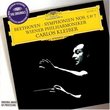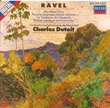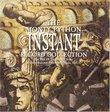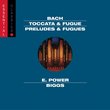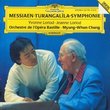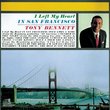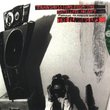| All Artists: Gustav Mahler, Leonard Bernstein, New York Philharmonic, Barbara Hendricks Title: Mahler: Symphony No. 2 Members Wishing: 0 Total Copies: 0 Label: Deutsche Grammophon Release Date: 10/25/1990 Genre: Classical Styles: Opera & Classical Vocal, Symphonies Number of Discs: 2 SwapaCD Credits: 2 UPC: 028942339521 |
Search - Gustav Mahler, Leonard Bernstein, New York Philharmonic :: Mahler: Symphony No. 2
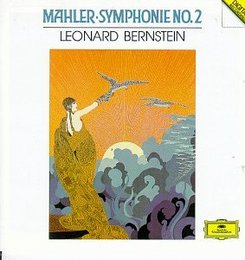 | Gustav Mahler, Leonard Bernstein, New York Philharmonic Mahler: Symphony No. 2 Genre: Classical
This is the most imposing performance of this symphony currently available. The tempos are rather slow, but Leonard Bernstein sustains the music's tension superbly, and the climaxes are every bit as overwhelming as they mu... more » |
Larger Image |
CD DetailsSynopsis
Amazon.com essential recording This is the most imposing performance of this symphony currently available. The tempos are rather slow, but Leonard Bernstein sustains the music's tension superbly, and the climaxes are every bit as overwhelming as they must be to justify the time he takes getting there. The concerts from which this recording derives were among the musical events of a lifetime, and much of that sense of occasion has found its way onto this disc. If you want to be blown away by music, then this baby's for you. --David Hurwitz Similar CDs
Similarly Requested CDs
|
CD ReviewsRomantic intensity pushed to the limits Thomas B Dawkins | 05/11/2000 (5 out of 5 stars) "I made the investment of buying the complete Bernstein Mahler cycle a number of years ago. Since then, I have found better recordings of a few (Abbado's fourth, Boulez's first), and certainly different recordings of the second, but none that are so romantic and intense. Abbado's is perhaps a bit more faithful to the score and certainly more operatic (Marilyn Horne's "Urlicht" alone is enough to make you swoon) and Klemperer's is more Germanic. However, after spending a considerable amount of time with these other recordings, I returned to the Bernstein today and found myself completely (and appropriately) overwhelmed. The non-stop outpouring of emotions is splendid. The brass in the New York Philharmonic has a full range of dynamic emotion; on the sweet side, especially the cantabile trumpet in the Scherzo and the trombone in the last movement, and on the forceful the horn calls in the last movement. The percussion is practically flawless and certainly bold. (The long percussion crescendo that precedes the march in the last movement is drawn out over an agonizing 20 seconds in this recording, twice as long as some others, to great effect). The crowning glory is of the Westminster Choir, whose attention to detail is almost beyond comprehension. Breaths in the long, slow, sustained sections are completely inaudible. The achingly slow recapitulation of "Aufersteh'n" (with organ) is not "mere" jubilation, but a solemn, ecstatic prayer for salvation and resurrection. My dwelling on the last movements is not to overshadow the first two movements, which are also excellent. The "Totenfeier" sometimes lacks the edge of Klemperer, but is not lacking in character. The second movement, especially the pizzicato section, is pure Tchaikowsky, as it probably was intended to be. I have listened to this work literally hundreds of times, but have never been moved as much as by this incredible recording." The definitive performance P. E. Tobias | California | 10/28/2006 (5 out of 5 stars) "Like several others who have written reviews here, I, too, was in the audience when this concert was recorded. Unlike the others, I have yet to hear the cd, although I've spent nearly 20 years wanting to hear it and to experience that evening again. It was, by far, the single most powerful musical experience of my life. Just thinking of it brings back the tremendous emotions of that night in April 1987. Allow me to add some things that no one else who was there has mentioned. Not only were we informed beforehand that the concert was being recorded -- can't say that I remember being given cough drops -- I must say I was in a daze afterward and have been ever since -- but we knew that at the end of the concert, Bernstein would be given the Albert Schweitzer Music Award. Despite rather extreme poverty, I had treated myself to the concert as a 32nd birthday present to myself. It was worth far far more to me than the month of peanut butter sandwiches that followed. The only seat I could afford was in one of the upper balconies on the right side of the auditorium; I sat close to the railing and could see the orchestra, the soloists and Bernstein from above. Once the music started, I don't remember moving, blinking or even breathing until the last note played. It was shattering. It was exhilarating. When the music ended, the audience took a collective breath and exhaled very slowly. All around me, I could hear people sobbing. After what seemed like several minutes, but was probably only a few seconds, the cheering started, rolling over me in waves. Before I even knew I'd left my seat, I was on my feet. I glanced at my watch, realizing to my amazement how much time (94 minutes, according to others who have written here) had elapsed. The cheering continued for a good 10 minutes or so. I'm not exagerrating when I say that never before or since have I heard anything like it -- just when you thought the applause couldn't get any louder or more passionate, it grew -- not unlike the end of the Mahler 2nd itself -- and grew and grew and grew in intensity. Wanting to record this night in my memory, I took a slow look around the theater, and saw tears on nearly every face. Everyone was standing; everyone was cheering. Then, just when we'd forgotten all about it, Bernstein was presented with the Albert Schweitzer Music Award. The applause and cheers started all over again. I do recall looking at my watch as I gathered my things to leave and being stunned to realize that nearly half an hour had passed since the music ended. The crowd surrounded me as I left Avery Fisher Hall. There was an emotional bond among us. Behind me, I heard someone read my mind, saying just what I was thinking: "This piece should never be performed again. No one could ever come close to this performance." During the next several minutes as I left the theater and walked up Broadway to my apartment, that same thought echoed around me, spontaneously, it seemed. Everyone who was there seemed to have come to the same conclusion: "No one should ever attempt to play Mahler's Second again." "This was the definitive performance." "It can't be topped." "This was it. No one should ever conduct this piece of music again." Since that night, I have never again listened to Mahler's 2nd. Not a recording, and certainly not in person. I couldn't. I'd heard the best, and nothing else will do. I'm placing my order right now. I've waited nearly 20 years to get this recording, and I really don't care how much it costs. It's worth every penny to me." Mahler power. P. E. Tobias | 06/20/1999 (5 out of 5 stars) "Leonard Bernstein made the Mahler symphony cycle his own: he re-discovered it, performed it, explained it, and brought about a well deserved revival for the 20th century's greatest symphonist and composer. The Second Symphony is one of Mahler's--and Bernstein's--most important pieces (some may argue most important), and this recording shows just how well LB comprehended the scope of this work. The opening of this symphony needs to be a fierce ball of energy, and that is just what happens here. From the first attack, the NYPO blasts of into one of the most powerful pieces of music ever written. I would love to have been able to have been in Avery Fischer Hall when this was performed: that enormous "fff" ritenuto in the middle of the 1st movement must have blown the roof off the place. The second movement is delicately done; a lovely, elegant reading like none I've ever heard. The Scherzo is just that; an orchestral setting of a "Wunderhorn" song. Christa Ludwig is fantastic singing the "Ulricht". She delivers one of the most religious, meditative performances on record. Then there's the massive, 30-some odd minute finale. It is admiralbly and brilliantly done: when the organ opens up "volles werk" with the final, tremendous chorus, there is one of the most heartbreakingly beautiful moments in all music. This recording may well be Leonard Bernstein's finest triumph: a fantastically balanced, musical reading to Mahler's most important symphony."
|

 Track Listings (10) - Disc #1
Track Listings (10) - Disc #1



